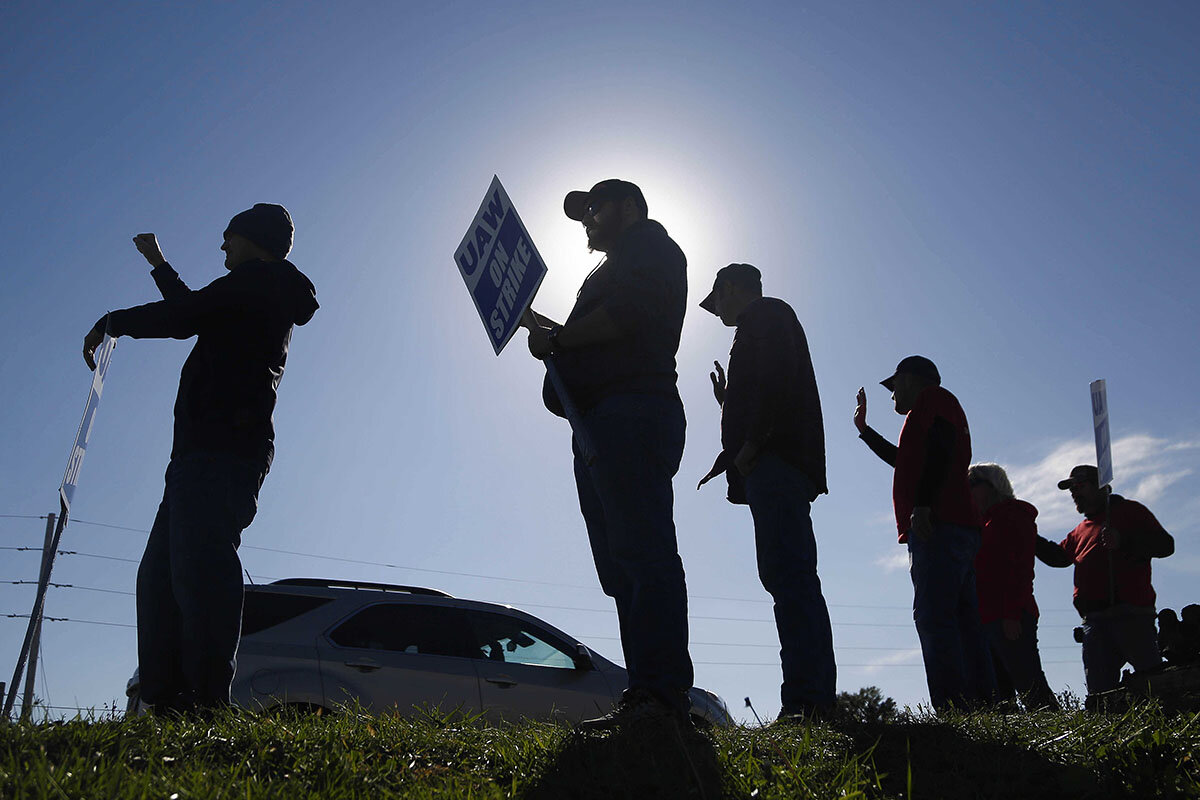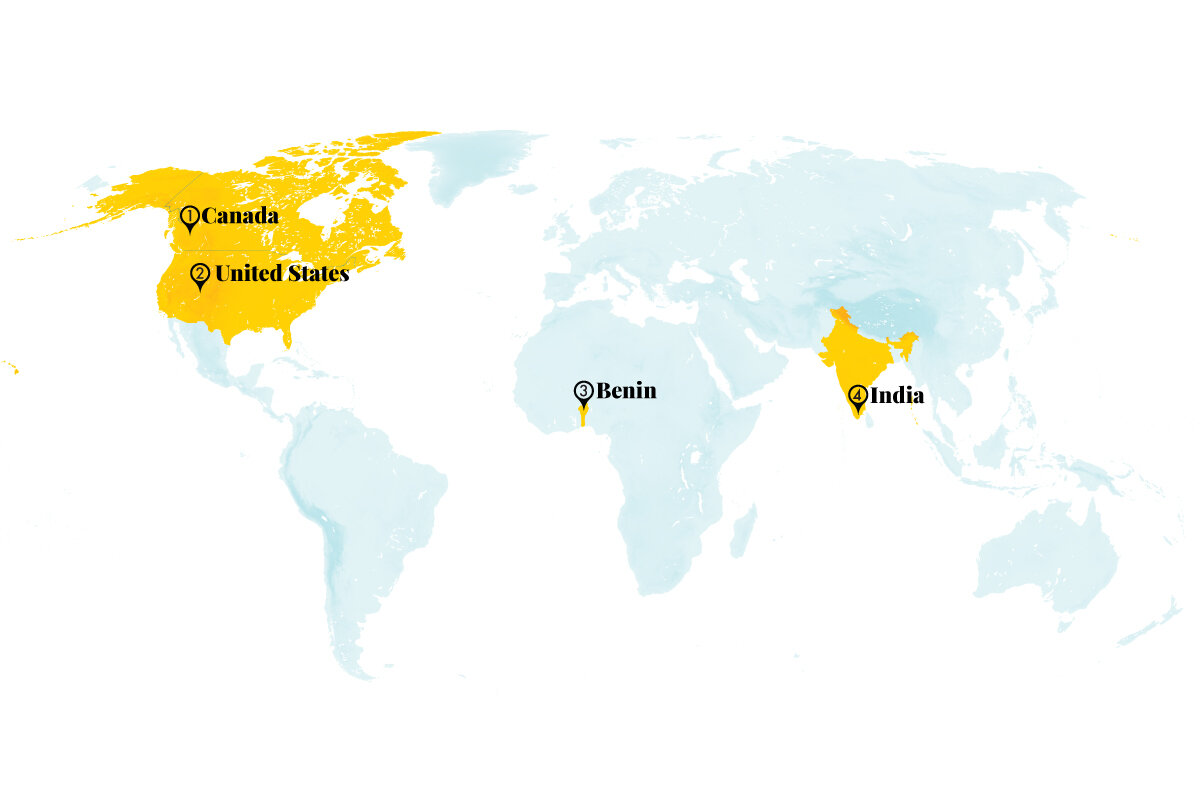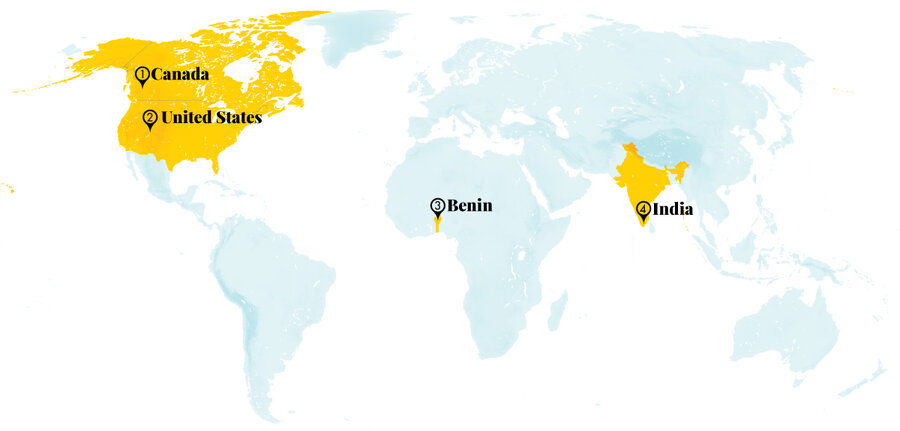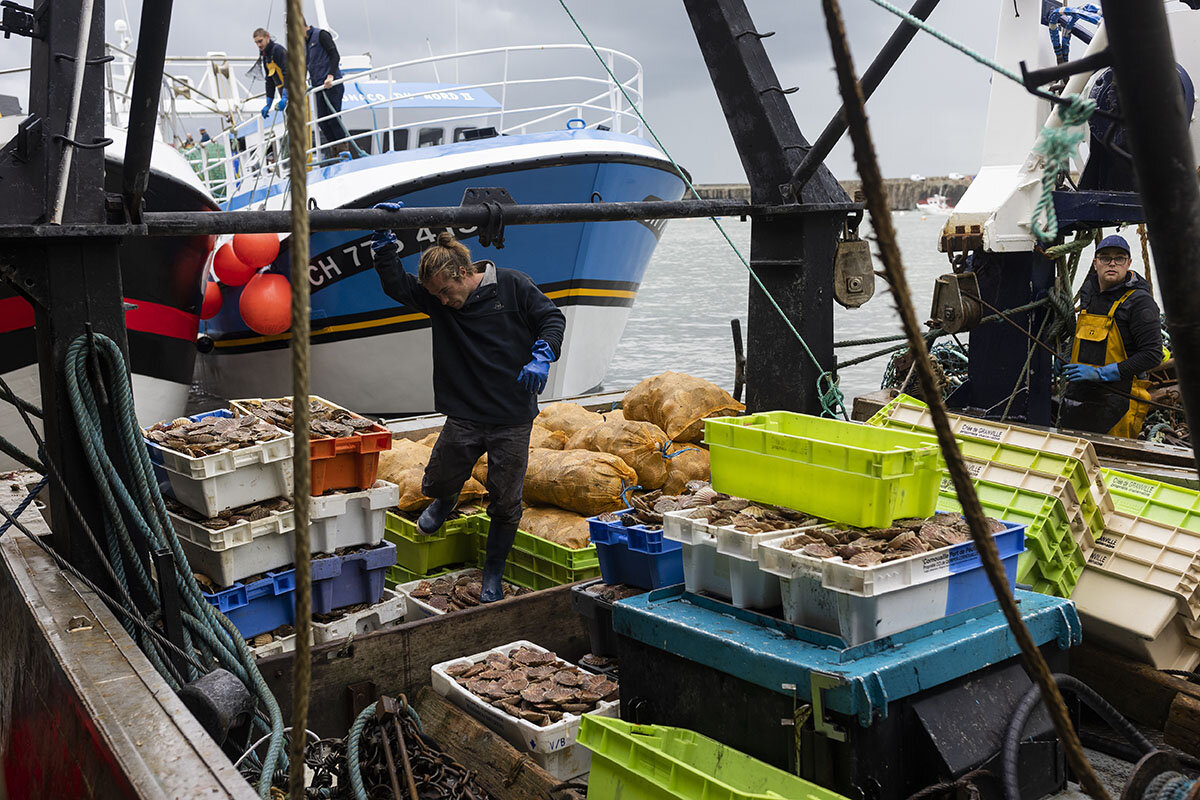As employers confront a labor shortage, working Americans have new leverage to bargain for pay, benefits, and flexibility. One analyst says, “Is it a labor shortage or is it a wage shortage? There’s a solution for this.”
Monitor Daily Podcast
- Follow us:
- Apple Podcasts
- Spotify
- RSS Feed
- Download
 Linda Feldmann
Linda Feldmann
“Humbled, grateful, and joyful to share that my friend and former fixer, Reza, is out of Afghanistan and so is his beautiful family,” reporter Jessica Stone wrote on Facebook last month.
Reza is the real name for “Mohammad,” the Afghan we highlighted in September who had worked as an interpreter and logistical aide (“fixer”) for Americans and Canadians over the years. An intellectual, educated opponent of the Taliban, Reza Kateb was desperate to get himself and his family out of the country.
Now they’re in Islamabad, Pakistan, awaiting transit to Canada. Above all, Mr. Kateb is full of gratitude, foremost for the team of women who worked his case tirelessly, including Ms. Stone, Jeanne Briggs of the U.S. group Transit Initiatives, Rachel Pulfer of Toronto-based Journalists for Human Rights, and Rosa Hwang of the Canadian TV network CTV.
Speaking by phone, Mr. Kateb says he hopes to settle in Toronto, perhaps become a certified project manager and pursue a Ph.D. His great-grandfather Faiz Mohammad Kateb Hazara is considered the father of modern Afghan history – a source of great pride but also a reason to leave. “That was a factor with the Taliban,” he says.
For now, Mr. Kateb is focused on his family, home-schooling his boys, ages 12 and 8, in English, and doting on his 4-year-old daughter. “Baby girl is with me, not practicing [English],” he laughs. “But I’m happy.”
His wife, who doesn’t speak English, is a stay-at-home mom who loves to cook. But maybe, once settled abroad, she’ll go to hairdresser school. These are good problems, helping everyone find their place and integrate into a new culture. Countless others are still trying to get out. The organizations that helped the Katebs are raising more money and working their connections.
“Every step,” says Ms. Briggs of Transit Initiatives, “requires an army of people working on everything.”










